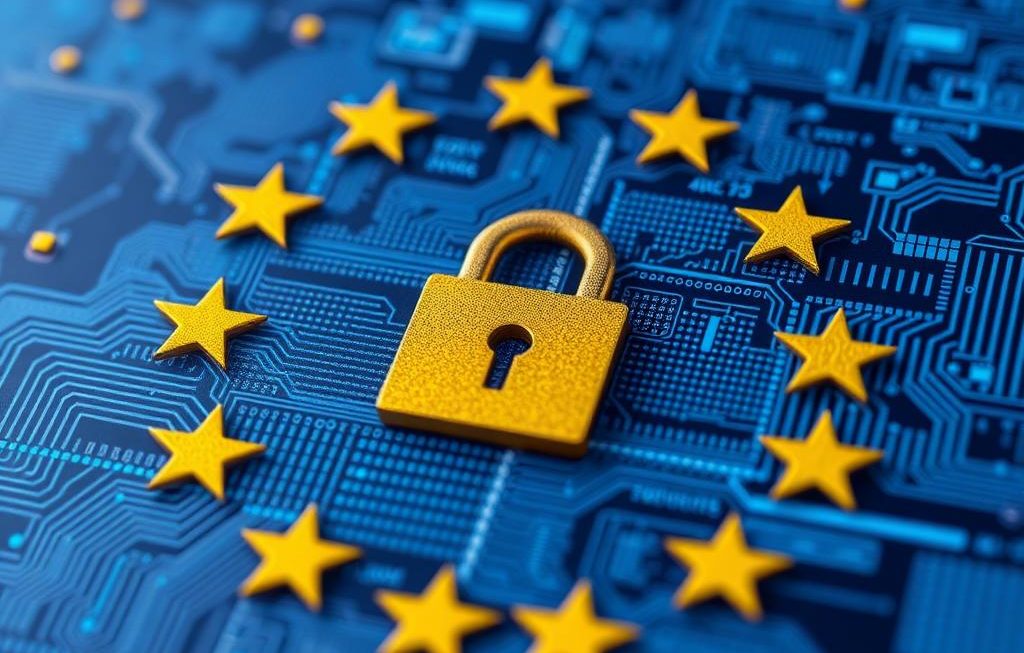The advent of digital technologies has transformed bureaucratic processes worldwide, and Cyprus is no exception. Particularly in the realm of business registration, digital signatures have become a cornerstone for streamlining interactions between entrepreneurs and governmental bodies. This guide discusses how digital signatures function within the Cypriot business environment, providing a detailed understanding of the legal framework, technological requirements, and practical steps involved in using an e-signature for online company registration in Cyprus.
Understanding the integration of a digital signature in businesses starts with an appreciation of the Cypriot e-government infrastructure. The government’s commitment to digital transformation has led to a sophisticated e-government Cyprus registration platform that facilitates a swift, secure, and transparent process. As a result, business owners, investors, and legal professionals can navigate company formation faster than before.
The Legal Framework Surrounding Digital Signatures in Cyprus
A digital signature in Cyprus business registration is not simply a convenience—it is a legally recognized instrument that carries full evidentiary weight in courts and administrative procedures. The underpinning legislation is aligned with the European Union’s eIDAS Regulation (Electronic Identification, Authentication and Trust Services), which Cyprus implemented to standardize and assure trust in electronic transactions across member states.
This regulation differentiates between various types of electronic signatures, but the highest level—qualified electronic signature (QES)—holds the equivalent status to a handwritten signature under Cypriot law. This means that when a document related to registration or business compliance is signed digitally with a QES, the signatory cannot later deny having signed the document without facing legal repercussions.
Furthermore, Cyprus has established trusted service providers that issue digital certificates necessary for generating qualified electronic signatures. These providers are vetted, monitored, and periodically audited to maintain the integrity of e-signature technologies used on critical platforms like the company registration portal.
Digital signatures backed by the eIDAS Regulation hold equal legal power to handwritten signatures in Cyprus business registration.
Understanding Digital Signature Technologies and Their Applications
The term “digital signature” is often used interchangeably with “e-signature,” but in technical terms, a digital signature refers explicitly to cryptographic processes that validate the identity of signatories and the integrity of documents. In Cyprus, leveraging e-signature technology for online company registration Cyprus demands familiarity with tools that provide secure and verifiable electronic identities.
The technological backbone for digital signatures usually involves a public key infrastructure (PKI). This system uses a pair of cryptographic keys—private and public—to encrypt and decrypt data, ensuring that only authorized persons can digitally sign documents while third parties can verify the signature’s authenticity. This framework is embedded within the e-government Cyprus registration portal, allowing users to complete formalities remotely without physical paperwork.
Beyond government-related functions, digital signatures have utility in contracts, tax documents, shareholder agreements, and other corporate procedures. Their adoption enhances efficiency and reduces errors, which might arise in paper-based workflows such as misplaced forms or illegible handwriting.
Key Benefits of Using Digital Signatures in Cyprus Business
- Speed and Efficiency: Processes that previously took weeks or days can now be completed in hours or minutes.
- Security: Encrypted signatures guard against tampering or fraud.
- Accessibility: Entrepreneurs can register companies remotely, eliminating travel or face-to-face meetings.
- Cost Reduction: Minimizes expenses related to printing, courier fees, and administrative overhead.
- Environmental Impact: Reduced need for physical documents contributes to sustainability.
The cryptographic nature of digital signatures ensures that only the authorized person can sign, dramatically enhancing security.
The Process of Online Company Registration in Cyprus Using Digital Signatures
The Cypriot government has implemented an online platform that centralizes company registration, leveraging e-signature Cyprus technologies to facilitate a paperless process. Entrepreneurs, lawyers, or business consultants can access the e-government Cyprus registration system to register new companies, update details, or submit compliance documents.
Here is a high-level outline of the typical workflow to register a business online using digital signatures:
- Create an Account: The user registers on the government portal, providing verified personal information.
- Prepare Registration Documents: The system generates the company registration forms based on user input, often pre-filled for ease.
- Apply Digital Certificate: If not already registered, entrepreneurs must obtain a digital certificate from an authorized provider for signing.
- Digitally Sign Documents: Signing is done electronically via the platform using a secure mechanism that confirms identity and intent.
- Submit Application: Once signed, the application is submitted and checked by the Registrar of Companies.
- Receive Confirmation: Notifications and company registration certificates are issued electronically, ready for download.
The entire process typically requires no physical presence unless specific exceptions apply, such as notarization of special documents or handling complex company structures.
Challenges and Considerations When Using E-Signatures for Business Registration
Despite clear advantages, there are challenges that users may encounter when using digital signatures for business procedures in Cyprus. Handling new technology often requires an adjustment period both for users and administrators.
One critical consideration is the preservation of digital certificate validity. Most certificates have expiration dates and require renewal through authorized service providers. Failure to renew can disrupt the ability to legally sign documents electronically, delaying registrations.
Another practical hurdle involves the initial setup. Users need compatible hardware like smart card readers or USB tokens, or alternatively, software-based signing solutions linked to trusted digital identities. Not all entrepreneurs may have immediate access to these components, which can introduce delays or frustrations.
There is also the legal responsibility to ensure accuracy and compliance, since electronically signed documents carry the same weight as handwritten ones. Enterprises must implement internal controls to verify document contents before signing.
Maintaining valid digital certificates and ensuring compatible technology are vital to a seamless registration experience.
Future Trends in Digital Signatures and Business Registration in Cyprus
The trajectory of digital transformation in Cyprus continues to evolve beyond current implementations. Government authorities and private stakeholders aim to expand the scope of digital identification and signature usage, integrating them with blockchain, artificial intelligence, and biometric verification methods.
For instance, incorporating blockchain technologies could enhance transparency and immutability in company registry records, reducing potential manipulation. Biometric authentication combined with e-signatures may further tighten security by relying on unique user traits.
At the policy level, Cyprus is expected to harmonize further with EU-wide digital single market strategies. This will foster cross-border business registrations using trusted digital identities from any member country, streamlining multinational entrepreneurship.
Summary Table: Digital Signature vs. Traditional Signature in Cyprus Business Registration
| Aspect | Digital Signature | Traditional (Handwritten) Signature |
|---|---|---|
| Legal Status | Equivalent under eIDAS, legally binding | Universal legal recognition |
| Verification | Cryptographic validation, certificate-based | Visual inspection and witness confirmation |
| Speed | Immediate submission and verification | Time-consuming, requires physical presence |
| Convenience | Remote access, 24/7 availability | On-site signing during office hours |
| Security | High — difficult to forge or alter | Susceptible to forgery and tampering |
Embracing the Future: Unlocking Business Potential with Digital Signatures in Cyprus
The integration of digital signatures within Cyprus’s business registration process marks a pivotal shift towards efficiency, security, and accessibility. For entrepreneurs and enterprises, this means a reduction in bureaucratic friction and expedited market entry. The legal certainty provided by adherence to EU regulations lends confidence to all parties involved, ensuring digital signatures are as reliable as their traditional counterparts.
Moreover, embracing digital signatures aligns Cyprus with global trends of digitization and smart governance. Businesses that leverage this approach benefit not just from convenience but from a competitive edge rooted in technological adeptness. The e-government Cyprus registration ecosystem is setting an example in facilitating transparent, streamlined corporate formalities.
As digital signature tools become more user-friendly and integrated with emerging technologies, the barriers diminish, making business registration an empowering experience rather than a bureaucratic challenge. Whether you are launching a startup or managing a mature company, leveraging the power of e-signature Cyprus services is increasingly indispensable in the modern economic landscape.
Digital signatures empower Cyprus businesses with speed, reliability, and legal certainty—key drivers for success in a digital economy.
Frequently Asked Questions
- What types of digital signatures are accepted for business registration in Cyprus?
Cyprus primarily recognizes qualified electronic signatures (QES) under the eIDAS regulation, which have the same legal standing as handwritten signatures. - How can I obtain a digital certificate for e-signature use in Cyprus?
Digital certificates are issued by authorized trusted service providers in Cyprus, which require identity verification and come with an expiration period. - Is it mandatory to use a digital signature to register a company online in Cyprus?
Yes, to complete the electronic submission of business registration documents via the e-government Cyprus registration portal, a valid digital signature is required. - Can foreign investors use digital signatures for company registration in Cyprus?
Yes, foreign investors can use qualified digital signatures recognized by Cyprus, often requiring compatible digital identity means from their home country or Cyprus-based certificates. - What technology do I need to use to sign documents digitally in Cyprus?
Typically, a smart card or USB token reader is needed, or software-based signing platforms integrated with government and trusted provider systems. - How is the authenticity of a digitally signed document verified?
The system verifies the digital certificate attached to the signature, using cryptographic checks to ensure that the signature is valid and the document untampered. - Are digital signatures secure against fraud or tampering?
Yes, digital signatures use encryption and are legally designed to prevent forgery and ensure document integrity throughout their lifecycle.



